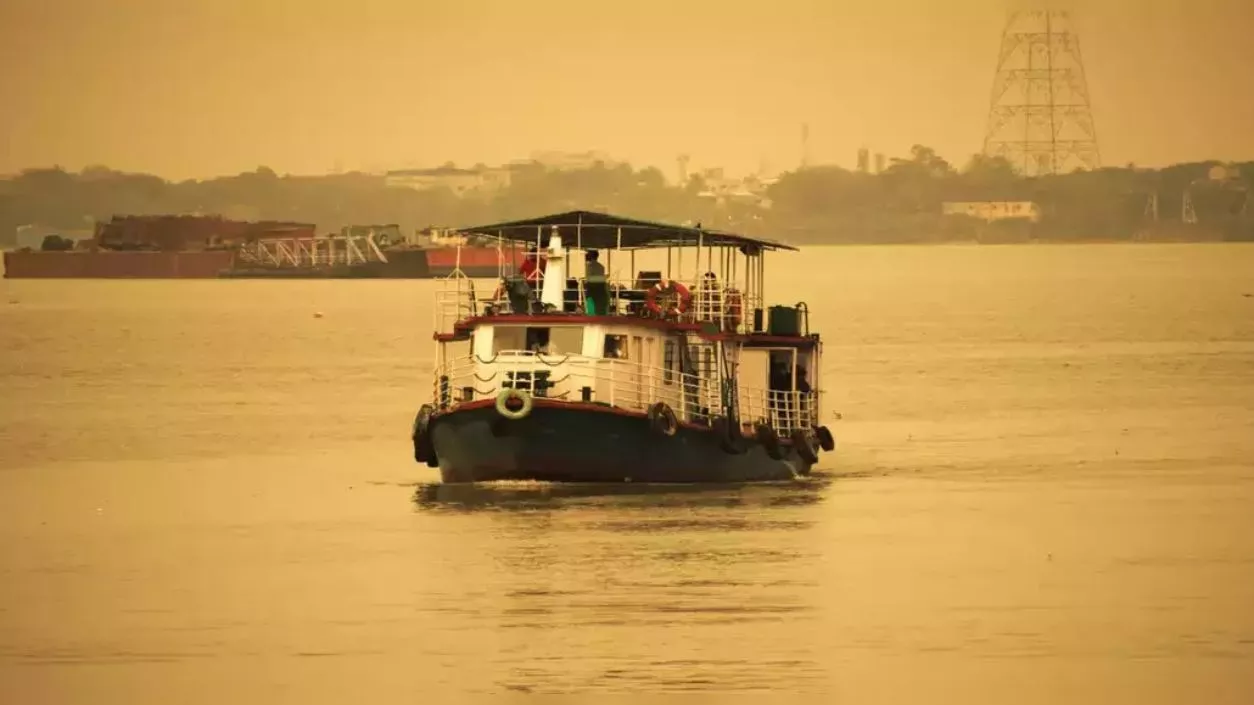Babul Supriyo and Justice Ganguly's heated exchange on 2nd Hooghly bridge
.gif)
.gif)

The West Bengal government is set to introduce 22 electric vessels (e-vessels) across ferry ghats in six districts, including Howrah, Hooghly, and South 24 Parganas, as part of a broader initiative to reduce fuel consumption and curb pollution. These electric vessels will provide an eco-friendly alternative to traditional fuel-powered vessels that currently operate in the region. The state transport department aims to enhance water-based transportation services by introducing cleaner, cost-effective solutions, with a particular focus on reducing reliance on diesel, which has been contributing to rising fuel costs and environmental degradation.
The first e-vessel, completed at a cost of 6 crore rupees, has a passenger capacity of 150 and will operate between Babughat and Howrah’s Belur Math and Dakshineswar. This electric vessel, built by Garden Reach Shipbuilders, can travel 30 kilometers on a single charge and operate continuously for up to two hours. This is a significant departure from conventional vessels, which consume approximately 10 liters of diesel per hour for similar passenger capacity. The shift to battery-operated vessels is expected to drastically cut down on fuel consumption and reduce emissions.
The remaining 21 e-vessels will have smaller passenger capacities ranging from 80 to 100 passengers. These vessels are designed for short-distance travel and will not be used on long routes such as Kolkata to Gangasagar, which exceeds their operational range. The e-vessels will be equipped with bio-toilets, which collect waste onboard to be cleaned at the ferry ghats, ensuring environmentally responsible waste management. The introduction of bio-toilets is part of the government’s strategy to reduce pollution and maintain cleanliness in water transport.
The initiative is supported by a 200 crore rupees loan from the World Bank, which is also funding the renovation of key ferry ghats across the state. These upgrades will include the installation of modern lighting systems, the introduction of smart card gates for seamless passenger movement, and the construction of additional toilet facilities. Major ghats such as Gourhati, Rasmani Ghat, Gadiyara, and others will be renovated to accommodate the new vessels, with the aim of improving the overall ferry infrastructure and service efficiency.
Chief Minister Mamata Banerjee has already approved the names of nine electric vessels as part of this project, including MV Sangeet, MV Saraswati, and MV Atreyi. These vessels will be deployed across different ferry routes to facilitate efficient and sustainable travel. The ongoing effort to modernize ferry services with electric vessels and upgraded infrastructure reflects the state’s commitment to reducing carbon emissions, lowering fuel costs, and providing passengers with a cleaner, more efficient mode of transportation.